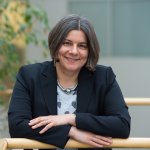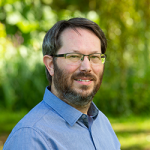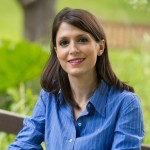
About us
The University of Surrey’s Leverhulme Doctoral Scholarships Network for AI-Enabled Digital Accessibility (ADA) is dedicated to training interdisciplinary researchers in AI-enabled accessible communication to transform access to digital media content for all.
What is AI-Enabled Digital Accessibility (ADA)
AI-enabled Digital Accessibility (ADA) is an emerging interdisciplinary research field that brings together expertise in artificial intelligence (AI), computer and engineering sciences, language, translation and accessible communication, cognitive and social sciences, and inclusive design. It explores how advances in AI can be used alongside human expertise to improve access to digital media for all.
ADA represents a shift from purely engineering-led, AI-driven methods towards an AI-enabled approach, in which humanities and social-science-based evidence of user needs guides comprehensive, nuanced, and responsible solutions for accessible digital content. Adopting a human-in-control approach will help mitigate common risks associated with AI, such as error, data bias, and lack of privacy, while establishing a new, interdisciplinary research paradigm.
The network will train the next generation of leaders in this transformative field, equipping them to integrate computational, social, and humanities-led approaches to language and multimodal content processing.
Ada Lovelace

The ADA Doctoral Scholarships Network (DSN) pays tribute to computing pioneer, talented writer and translator Ada Lovelace, who resided in Surrey and overcame societal barriers faced by women in 19th-century England to pursue her passion for mathematics. Inspired by her legacy, ADA aims to lead a transformative shift in AI research towards digital inclusion as a prerequisite for equal participation in today’s digital society.
Directors
Director

Professor Sabine Braun
Expert in human–machine interaction to enhance access to knowledge, culture, media and services; with a focus on spoken-language interpreting and audio description (video description).
Co-directors

Professor Philip Jackson
Expert in spatial audio and machine listening, directing research on object-based media and audio-visual AI.

Dr Elena Davitti
Expert in human-centric, hybrid modalities for real-time speech-to-speech and speech-to-text practices across languages.

Professor Constantin Orasan
Expert in Natural Language Processing (NLP), with particular emphasis on using it for translation, interpreting and to facilitate access to information.